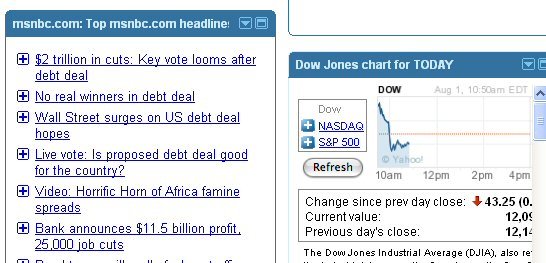Gone4Good
Give me a museum and I'll fill it. (Picasso) Give me a forum ...
- Joined
- Sep 9, 2005
- Messages
- 5,381
If Congress really does nothing on the deficit and just extends the debt ceiling, the likelihood of a downgrade is high.
If you read the last several S&P reports you'll notice a considerable change in tone over the last several months. Back in January we had a stable outlook and many years to deal with the demographic pressures impacting our credit outlook, according to S&P. Today they say we'll be downgraded if we don't achieve meaningful deficit reduction now.
What changed in seven months?
Credit quality is a measure of two things. 1) Ability to pay 2) Willingness to pay. Seven months ago our ability to pay needed to be shorn up with long-term structural changes. The assumption was that we'd make the necessary adjustments but nothing immediate was required. Our willingness to pay was never in question.
Fastforward to today. Our willingness to pay is highly questionable with many elected members of Congress and some leading presidential candidates saying a default isn't a bad thing and may actually be desireable. Our ability to pay is also questionable given the unwillingness of our politicians to agree publicly even on the things that they agree on privately.
Congress, and Congress alone is responsible for any near-term downgrade, if it should happen. A downgrade won't be about our economic capacity to honor our debts. It will be about the isane turn our politics has taken of late.

